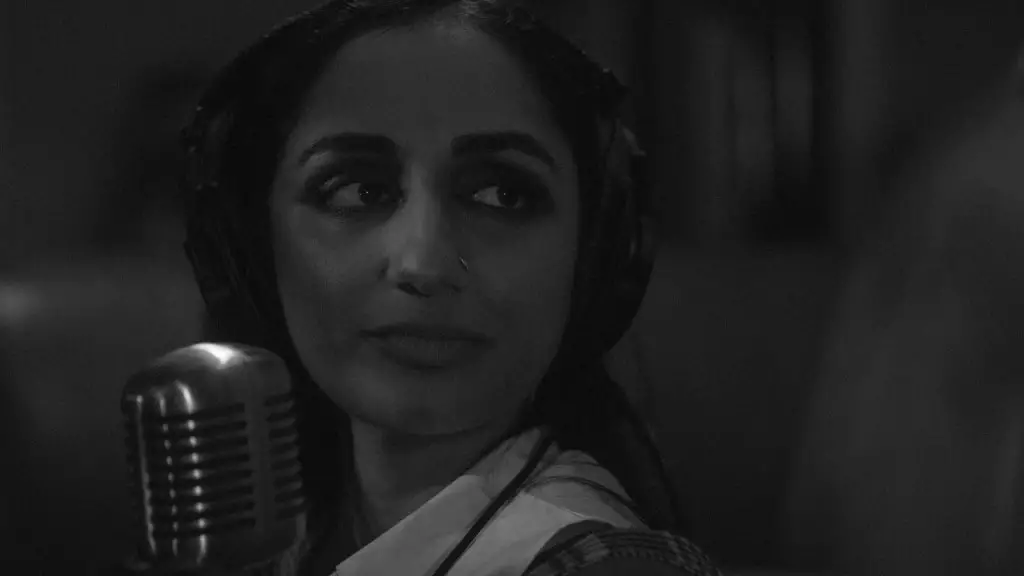Kiran Deol, a talent known for her voice and perspective as a podcaster, has taken a bold leap into the world of film, marking her territory as an actress in the zombie comedy “Didn’t Die.” Premiering at the prestigious Sundance Film Festival in its Midnight Section, the film not only showcases Deol’s versatility but also highlights a growing trend in the film industry where podcasters are transitioning into acting roles. This shift reflects broader changes as traditional media converges with the digital world, paving new pathways for diverse talents.
In “Didn’t Die,” Deol portrays Vinta, a character intricately woven with a mixture of humor and despair. Set in a post-apocalyptic landscape teeming with “biters,” Vinta embodies a complex persona of a podcast host who disguises her inner turmoil with a façade of sarcasm. This duality challenges audiences to confront their own emotions—particularly in a time marked by societal grief and isolation. This is not merely a comedic role for Deol; it is an opportunity to explore deeper emotional territories while paying homage to classic zombie narratives, particularly the influential works of George Romero.
Deol’s relationship with filmmaker Meera Menon has added a layer of intimacy and collaboration to the narrative. Having previously worked together on the film “Farah Goes Bang,” their creative synergy flourished in developing Vinta’s character. Menon, in her quest to represent a colorful and diverse family dynamic, crafted a script that resonates with the South Asian experience, while Deol contributed insights that enriched the character’s development. Deol emphasizes the importance of adding depth to Vinta by drawing from personal experiences—a reflection on how creators can use their backgrounds to shape narratives that are relatable and engaging.
The film also serves as a meta-commentary on the collective grief faced by society due to recent global crises. As Deol articulately states, the film explores not just personal struggle but a broader societal conversation about loss—one exacerbated by the COVID-19 pandemic and various natural disasters. This thematic depth invites audiences to ponder significant questions: how do individuals cope with collective trauma? What does it mean to rebuild and move forward? Deol’s portrayal offers a therapeutic lens, blending humor with serious reflection.
Beyond her role in the film, Deol speaks candidly about the challenges and the potential within the comedic landscape, particularly regarding diversity. The comedy industry has historically struggled to uplift underrepresented voices. As Deol notes, the responsibility increasingly lies with emerging comedians to establish their brands and presence online. This shift is both empowering and burdensome, as performers must navigate a “fear-based business” climate where job security often stifles creativity and risk-taking.
Deol’s remarks echo a fundamental question in the entertainment industry: how can executives and networks foster an environment that encourages experimentation rather than punishing failure? If the industry continues to adhere rigidly to established norms, it risks missing out on the next wave of comedic talent that can genuinely resonate with diverse audiences. Deol’s efforts reflect an ongoing dialogue around the need for inclusivity, and her hopes for a more open-minded approach within the industry’s power structures are both aspirational and essential.
As Kiran Deol steps further into the spotlight, her upcoming comedy special “Joysuck” promises to showcase her unique voice and perspective. Filmed at the Dynasty Typewriter comedy club, the special seeks to illuminate her comedic philosophy while connecting with audiences in a raw and authentic manner.
Kiran Deol’s journey from podcasting to a leading role in “Didn’t Die” signifies more than just a career milestone; it embodies the transformation of media landscapes and the importance of representation in storytelling. Her advocacy for risk-taking in comedy and beyond is a rallying cry for creativity in a fear-dominated industry, underscoring the reality that true innovation often arises from daring to explore the uncharted. As we move forward, empowering diverse voices and embracing vulnerability will surely enrich the cinematic landscape and inspire audiences to engage with the complexities of grief, humor, and human connection.

